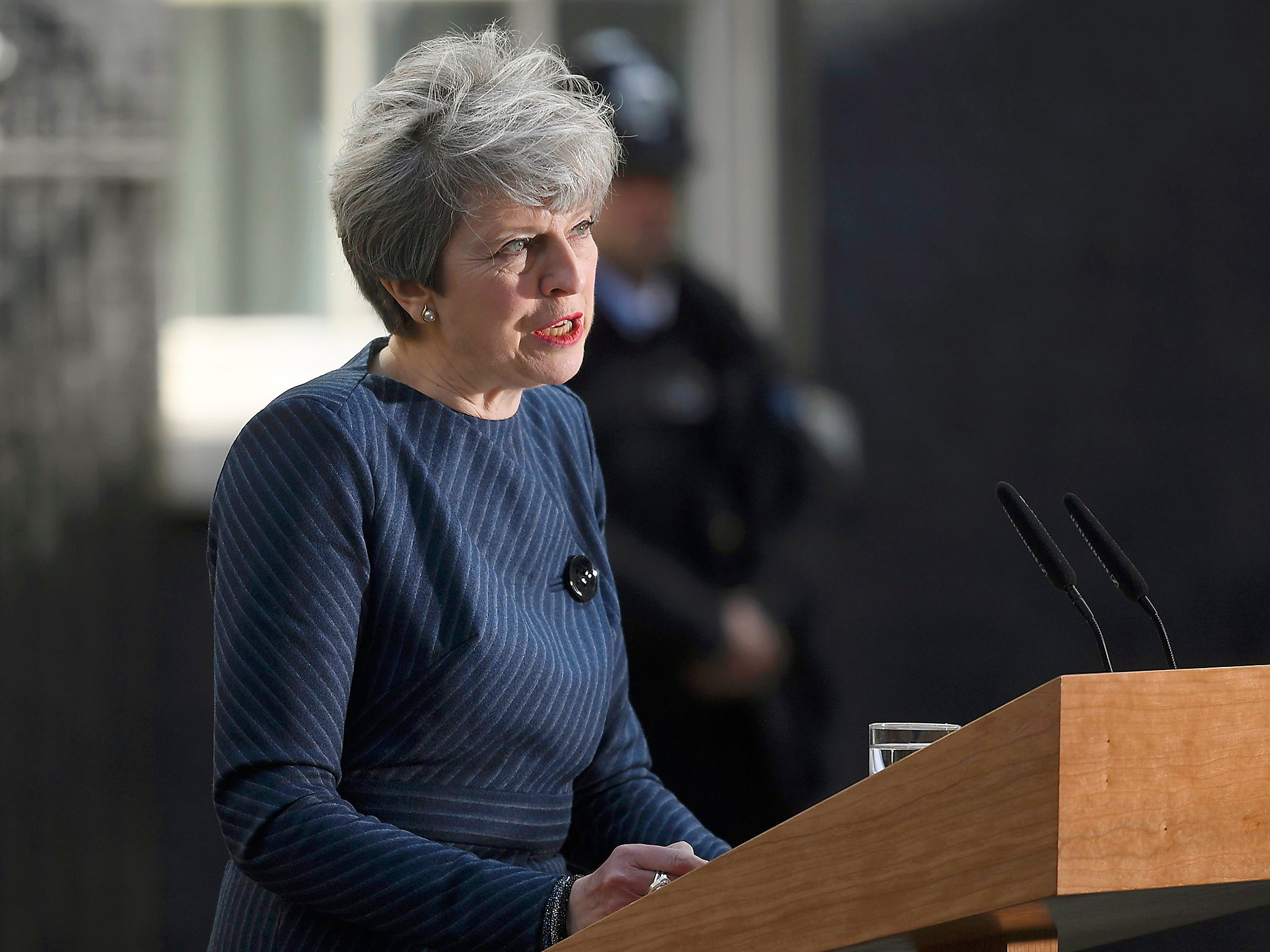General election 2017: What happens next? Everything you need to know explained
There will be a general election in June 8th, but what actually happens next?

Your support helps us to tell the story
From reproductive rights to climate change to Big Tech, The Independent is on the ground when the story is developing. Whether it's investigating the financials of Elon Musk's pro-Trump PAC or producing our latest documentary, 'The A Word', which shines a light on the American women fighting for reproductive rights, we know how important it is to parse out the facts from the messaging.
At such a critical moment in US history, we need reporters on the ground. Your donation allows us to keep sending journalists to speak to both sides of the story.
The Independent is trusted by Americans across the entire political spectrum. And unlike many other quality news outlets, we choose not to lock Americans out of our reporting and analysis with paywalls. We believe quality journalism should be available to everyone, paid for by those who can afford it.
Your support makes all the difference.Despite, or perhaps even because of, a year's worth of promises to the contrary, there will now be a snap general election on 8 June. Why, and indeed how, is it happening?
What will happen during the parliamentary vote?
On Wednesday, after Prime Minister’s Questions, 90 minutes has been set aside for a vote on whether to hold a general election, a provision created by the 2011 Fixed-term Parliaments Act that has never been exercised before.
There is no protocol. A spokesperson for the Prime Minister has confirmed that she will be there, but has not gone so far as to indicate whether or not she will address the house.
When does Parliament break up and the campaign begin?
Parliament will be officially prorogued on Wednesday 3 May. There will be local council elections the following day. The campaign will officially begin that day.
Will there be TV debates between the party leaders?
Probably not. TV debates are certainly not party of any constitutional or legal requirement. The terms on which they take place have in the past been brutally fought over by broadcasters, politicians and the Electoral Commission. Theresa May has already suggested she will not take part in any TV debates, just as David Cameron did in 2015. Mr Cameron was fiercely criticised for “bottling” those debates, then went on to win an unexpected overall majority. Theresa May has already brought in Sir Lynton Crosby, the electoral strategist who delivered David Cameron that majority, and who advised him not to take part in a TV debate.
Jeremy Corbyn and Liberal Democrat leader Tim Farron have both indicated they would be happy to take part. Mr Corbyn has said “if these election is about leadership, she [Theresa May] should not be dodging TV debates”.
Tim Farron has called on the BBC to hold a debate without the Prime Minister, and represent her with an an empty chair. It would be extraordinary if they were to do so.
What result do the latest polls suggest?
The weekend polls give Theresa May a 21-point lead, which could cost Labour 70 of its 232 seats, but the Liberal Democrats, with its strategy of opposing Brexit, could and should regain a significant number of the seats it lost in 2015.
Could there be a new progressive alliance against Brexit?
In the imagination, Nick Clegg, George Osborne, Tony Blair, Peter Mandelson could all very easily slot into a new, pro-EU party. But in real life they will not abandon their own parties. A progressive alliance would, probably, require both main parties to split in two. The would-be splitters will not do it.
Will the vote affect the Brexit negotiations?
Theresa May said she has called the election to give herself a stronger hand in the Brexit negotiations, and if she does do as is overwhelmingly expected and return to Parliament with a far larger majority, it is fair to say her negotiating power will be strengthened.
Whitehall departments have for some time been drafting preparatory legislation to ready the UK for its departure from the EU, with laws that must be passed in Westminster on almost every policy area, on trade, on immigration, on customs arrangements and so on. These must be passed concurrently with the negotiations, and EU negotiators will certainly be emboldened if brutal parliamentary battles form the backdrop to them.
When is the general election vote and when will we get the result?
Thursday 8 June – a rare June general election. The winner, and the size of their win, will become clear at some point in the small hours of Friday morning, with the very last of the 650 constituencies declaring their results by Friday lunchtime.
Join our commenting forum
Join thought-provoking conversations, follow other Independent readers and see their replies
Comments